With the support of the Firebird Foundation for Anthropological Research (USA), ethnomusicologist Dr Christian Poske conducted a research project on the Naga recordings of the German ethnologist Thomas Kaiser in collaboration with the Ethnographic Museum Zurich and the Highland Institute between October 2022 and April 2023. Comprising over 2,000 sound recordings of songs and accounts of village histories from different Naga communities, Kaiser’s recording collection is a comprehensive ethnographic audio documentation of Naga traditional music and oral traditions. Kaiser began recording in Nagaland in 2004–2005 and continued his fieldwork during the projects “Material Culture, Oral Traditions and Identity of the Naga of Northeast India” (2006–2010) and “Einbaumtrommeln” (“Log Drums”) (2011). In these periods, Kaiser recorded songs and stories of most Naga communities in Nagaland and some in Assam and Manipur. His recording collection is held by the Ethnographic Museum Zurich, alongside extensive and detailed documentation comprising transliterations, translations, and explanations of most recorded songs and stories (Kaiser 2013). During the project funded by the Firebird Foundation, the Museum provided a copy of the complete collection with documentation to the Highland Institute to make Kaiser’s recordings accessible again to Naga researchers and community members based in the northeast.
Additionally, Christian recirculated selected recordings in the districts of Kohima, Tseminyü, Kiphire, and Peren in Nagaland and Dima Hasao in Assam to gather information on incompletely documented sections of the collection and conduct interviews with performers about the cultural context of their songs. Amongst others, he visited the villages of Terogunyu and Tesophenyu in the Tseminyü district accompanied by Lanuakum Aier of the Highland Institute, where they collected song transliterations and translations with the help of Rengma subject experts (Fig. 1).
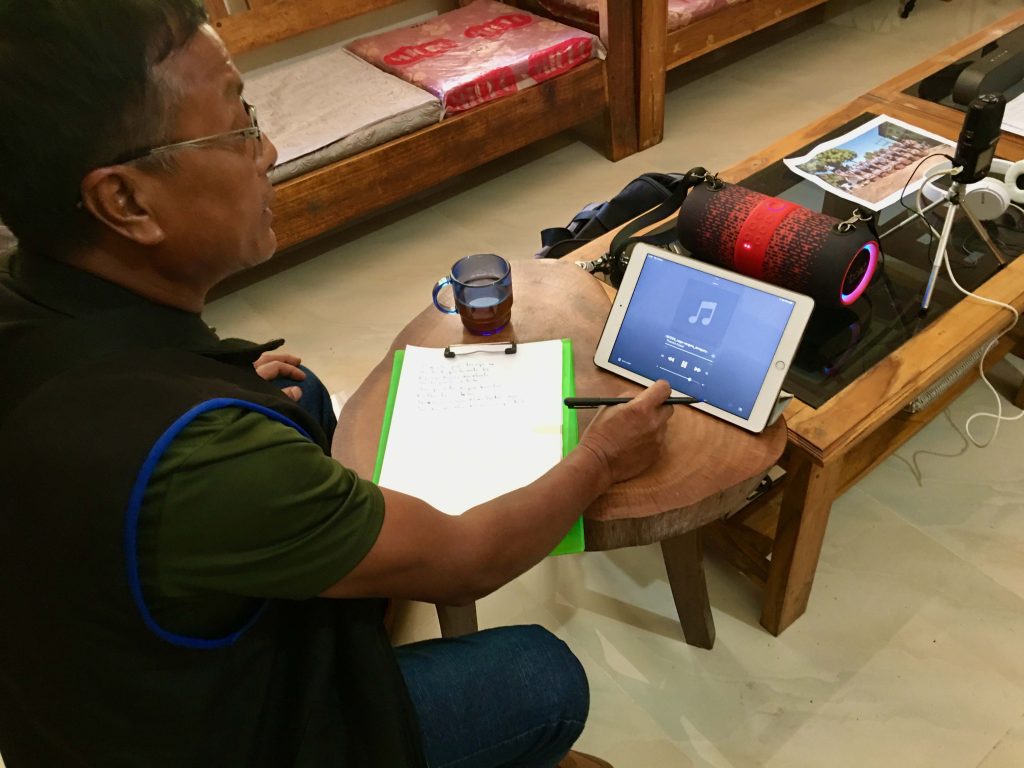
In January, Christian visited the villages of Pungro and Chomi in the Kiphire district, where he interviewed other singers that Thomas Kaiser had recorded, amongst others octogenarian singer Khiukiushe Jongphule, a native Makuri speaker (Fig. 2).
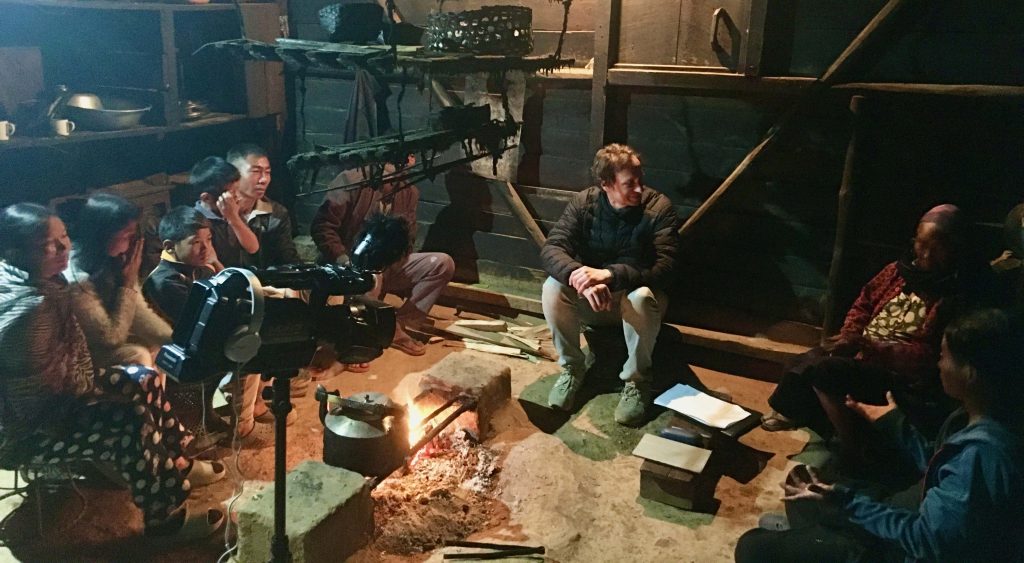
In Peren, Christian conducted fieldwork assisted by Zeme researcher Yihingle Ndang, who pursues her PhD at Jamia Millia Islamia in Delhi. After Peren town, they visited the village of Old Peren, where Christian documented dance performances of the Hega celebrations, the most important festival of the Zemes (Fig. 3).
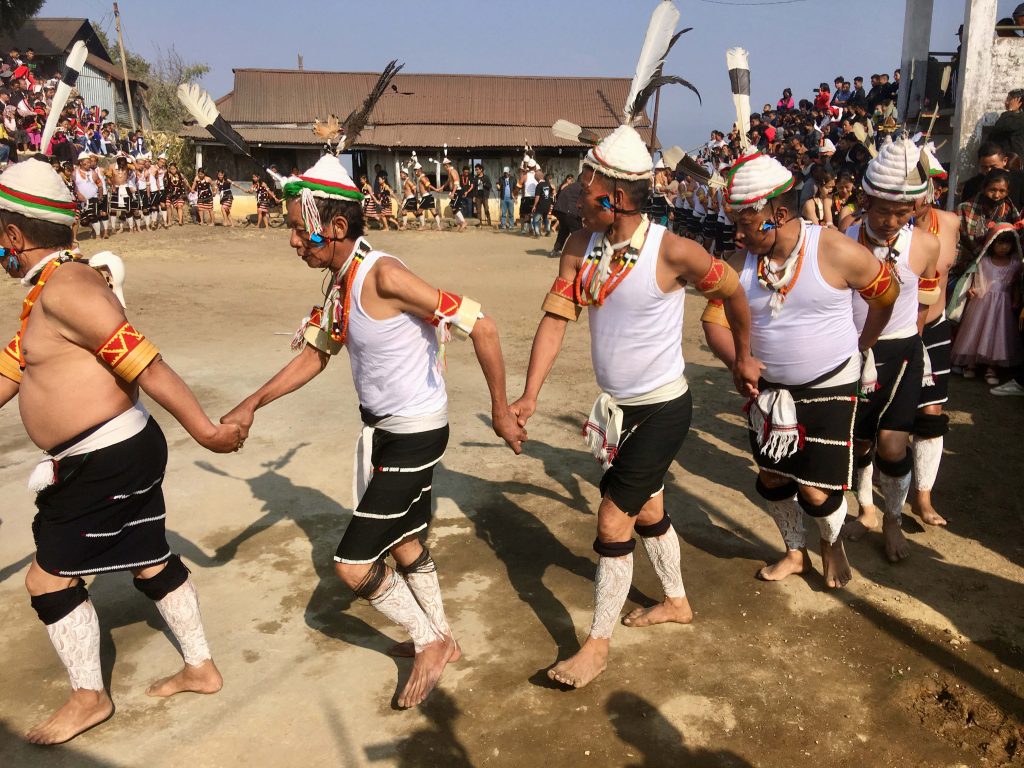
Subsequently, they travelled to the village of Benreu to interview members of the music group Kezuyima Benreu (“Peace Group Benreu”) that Kaiser had recorded in 2006 (Fig. 4). Next, they visited the village of Mpai in the southern part of the Peren district near the Manipur border. During interviews in the two villages, they collected data that later allowed Thomas Kaiser to correct part of his recording documentation.
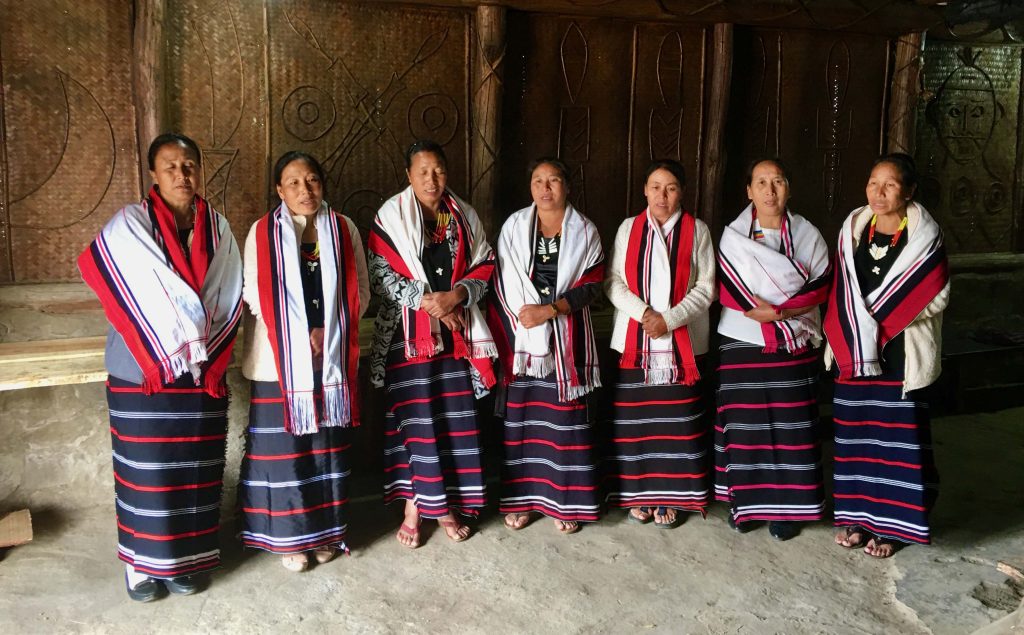
After that, Christian travelled to Dima Hasao to conduct fieldwork assisted by Zeme community worker Ramgaying Riame. Based in the town of Haflong, they visited the villages of Boro Haflong and Hereilo to conduct fieldwork among Zeme Herakas. In Boro Haflong, several of Kaiser’s recordings participants had passed away. Therefore, Christian and Ramgaying decided to present framed portraits of deceased singers to their relatives as a token of gratitude for participating in the restudy of Kaiser’s recordings (Fig. 5).
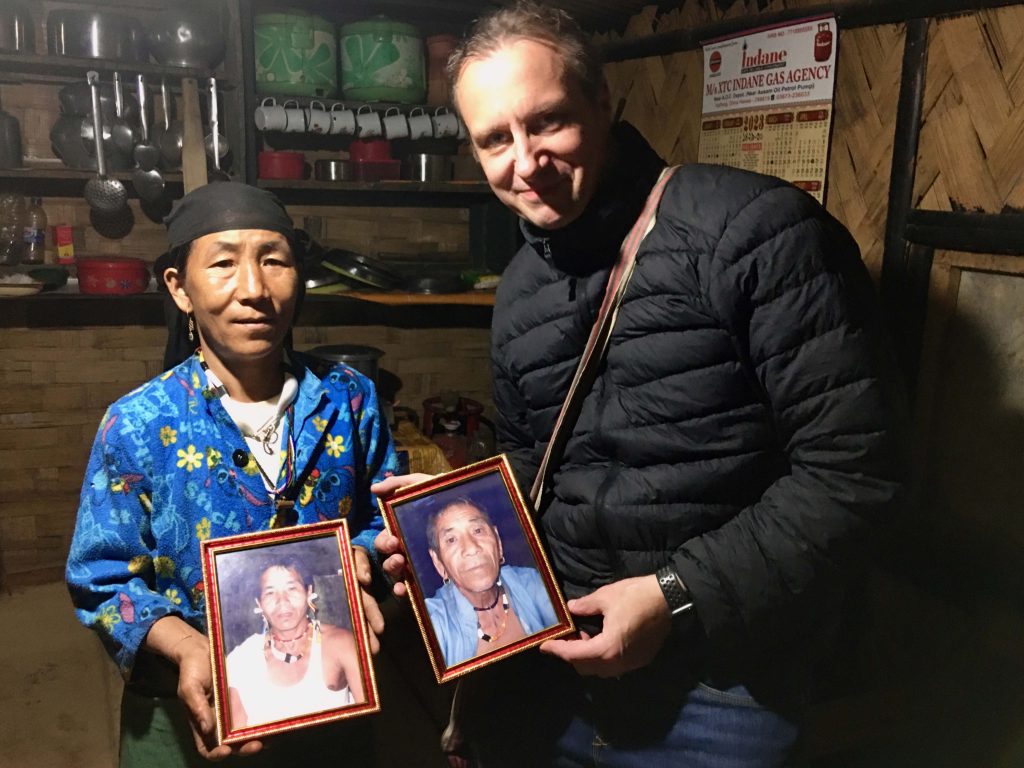
The project concluded with a two-day workshop on the theory and practice of ethnographic fieldwork and field recording (29–30 March 2023) at the Department of Anthropology of Kohima Science College, organised in collaboration with departmental staff, the Anthropological Society of Nagaland, and the Highland Institute (Fig. 6). Naga, Indian, and Nepalese researchers from Nagaland, Assam, Sikkim, West Bengal, and Madhya Pradesh attended the workshop and appreciated it as a welcome opportunity for research training and skills building.
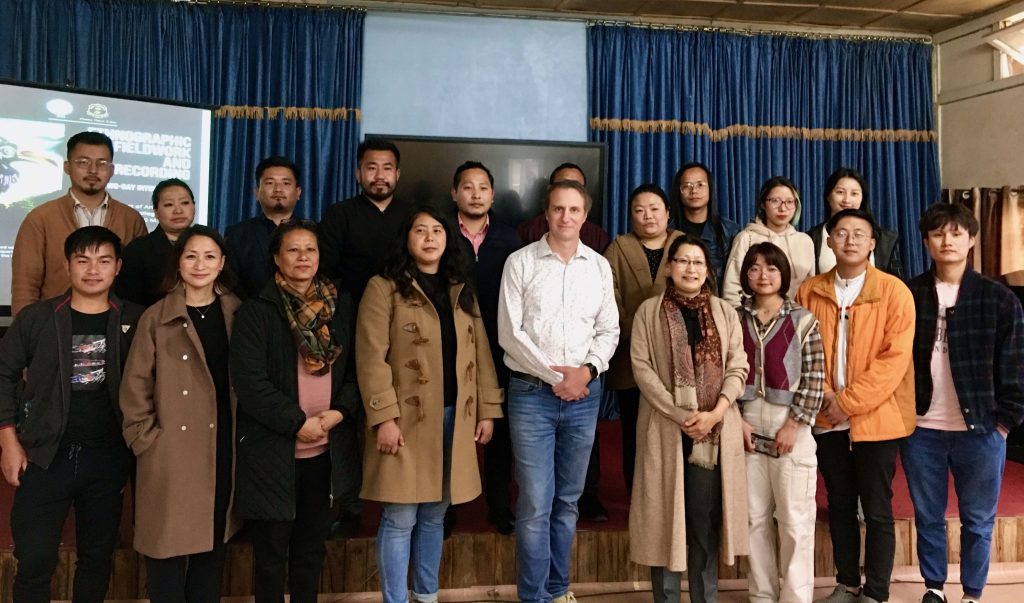
Though the project allowed Christian to collect missing song lyrics and study the cultural backgrounds of songs from selected communities, other sections of Kaiser’s collection remain unexplored and require further work. The Highland Institute encourages scholars, musicians, composers, and others interested in researching the recordings to contact the Institute for access.
Drop us a line at: info@highlandinstitute.org
We are looking forward to hearing from you!
References
Kaiser, Thomas. 2013. ‘Namen Und Lieder: Mündliche Traditionen Der Naga-Gesellschaften Nordost-Indiens’. Archiv Weltmuseum Wien 61–62: 51–81.

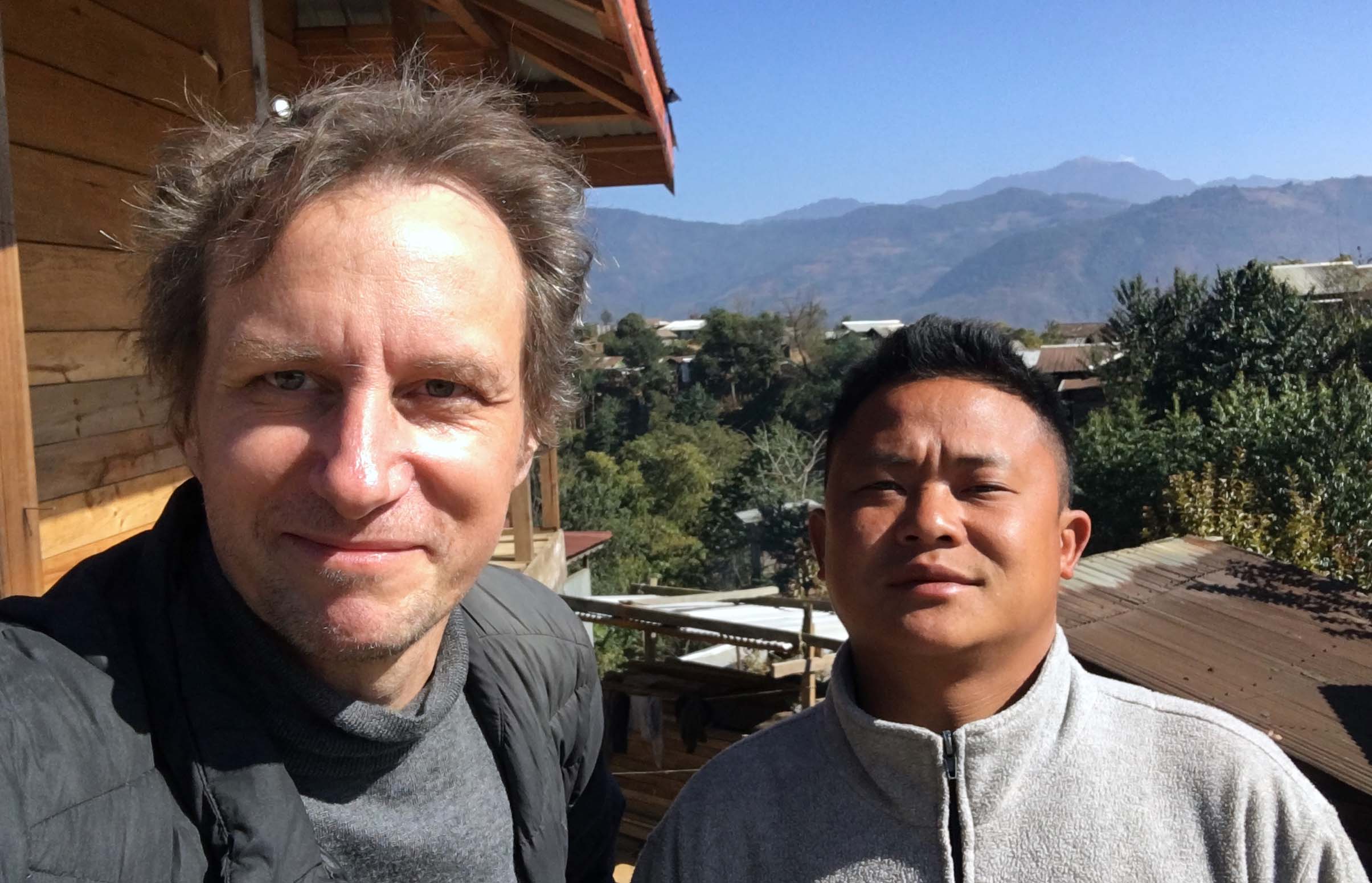

Khiukiushe Jongphuvle is my grandmother, a folksong composer and singer.